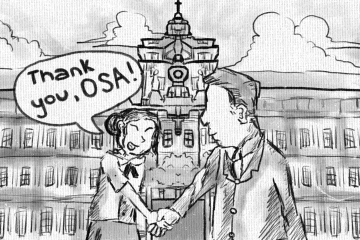 LAST YEAR, numerous women took to social media to narrate their experiences of sexual harassment in Hollywood and to call out those who have harassed them. The Weinstein effect eventually reached the local scene; some notable figures, including prominent artists and indie band members, were proven to be sexual predators.
LAST YEAR, numerous women took to social media to narrate their experiences of sexual harassment in Hollywood and to call out those who have harassed them. The Weinstein effect eventually reached the local scene; some notable figures, including prominent artists and indie band members, were proven to be sexual predators.
Movements against sexual misconduct were launched, including the #MeToo and the Time’s Up movement.
It is undeniable that social media played an important role in jumpstarting the conversation on sexual harassment. The women who came forward through social media with their accounts of harassment led to the condemnation of powerful but sexually abusive men. It also drew attention to the worsening problem of sexual harassment.
So why are some people criticizing this way of handling the issue?
Some netizens say the way women name and shame their abusers on social media is proof of the toxicity of the call-out culture, which refers to how those who display inappropriate behavior are publicly reprimanded or humiliated. Critics say these issues should be resolved in private with only the parties involved. Others say that reporting to authorities would be better than sharing on social media. Some even worry about the safety and well-being of the perpetrators.
There are a lot of considerations to be made when it comes to issues like this. It is possible that the victim has already confronted her abuser but was not satisfied with the handling of the issue, which led her to air out grievance on social media. Another possibility is that the issue has been reported to the authorities, but the victim was met with disbelief, passiveness, and victim-blaming.
With the patriarchal society and misogyny deeply rooted in our culture, women have been silenced most of the time when speaking about their experiences with harassment. Even now, experts say that sexual harassment cases are largely unreported. But with social media, the world has no choice but to let women speak and be heard.
It is difficult for a victim to speak out, and yet it is equally difficult for them to stay silent. Being a victim of sexual harassment causes people to question their self-worth and to look at themselves with disgust and humiliation. After all that they have done, are the perpetrators really the ones deserving of protection from the scrutiny of the public eye? Of all people, are the victims the ones to be blamed for how they deal with their trauma?
The call-out culture that these netizens so frequently shy away from is important in the fight to end sexual harassment. It ensures, in a way, that sex offenders are held accountable for their actions. To criticize women calling out their abusers on social media is the same as turning a blind eye to the issue.
To those who have been victims of sexual harassment, do not be afraid to speak out. Do not let others trivialize your pain and your trauma. Do not allow your abusers to intimidate and shame you for their actions. There are people out there who will still listen and stand in solidarity with you, myself included.
And to the sex offenders, the men who have long comfortably sat in power and privilege, who treat women as objects, accessories, and sex toys: You complain about how difficult, and even frightening, it is to be a man right now, since a simple remark, a quick glance, an “accidental” touch can be considered sexual misconduct. You laugh at those who came forward with their stories and threaten to stop offering your compliments and your displays of affection. Keep your unwanted gestures, we have no need for them.
The tides are turning. This may feel like the end for you, but it is only the beginning for so many women who have long been victims. And you are right to be afraid. F
For feedback, email minkatiangco.theflame@gmail.com.



